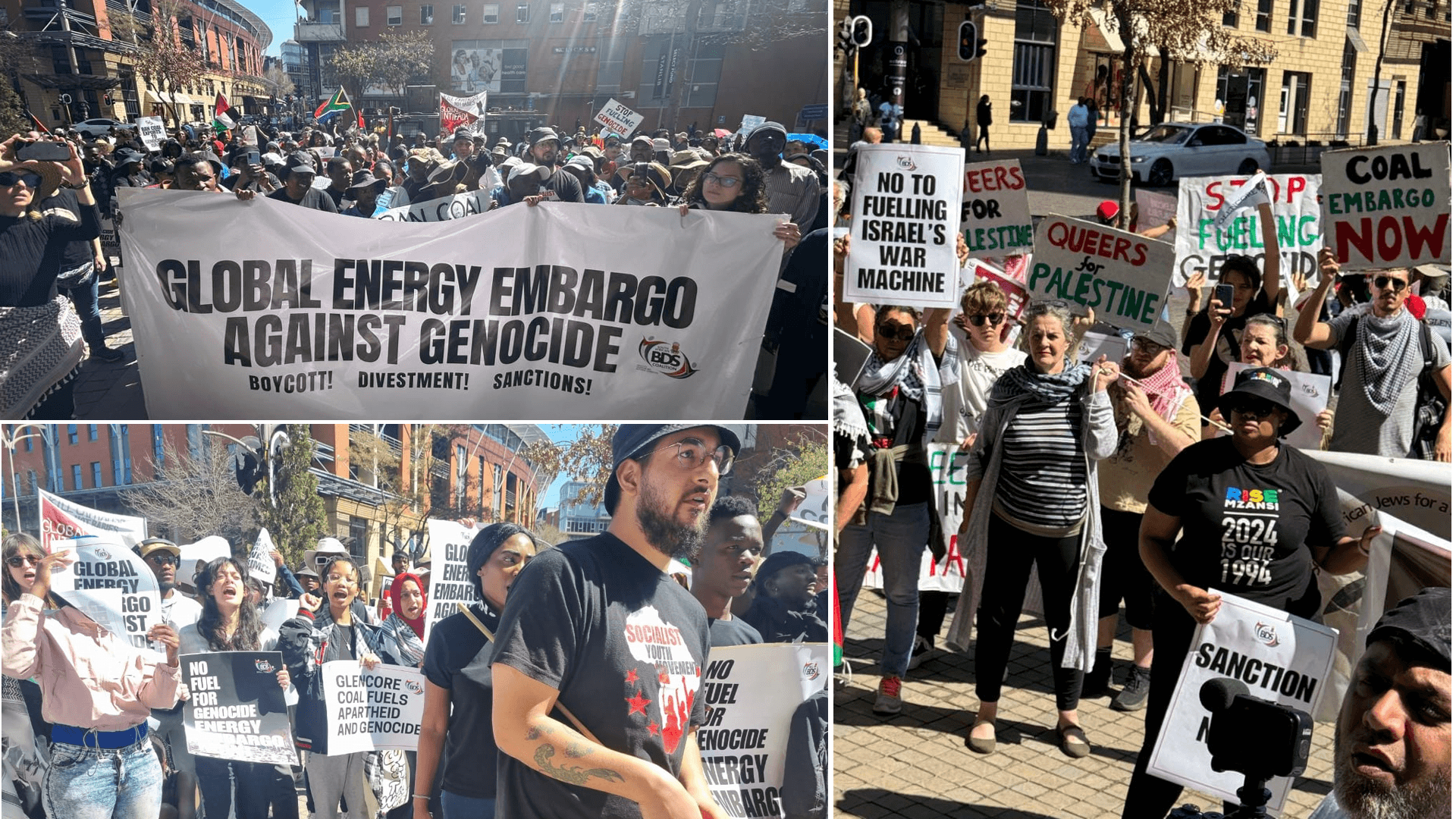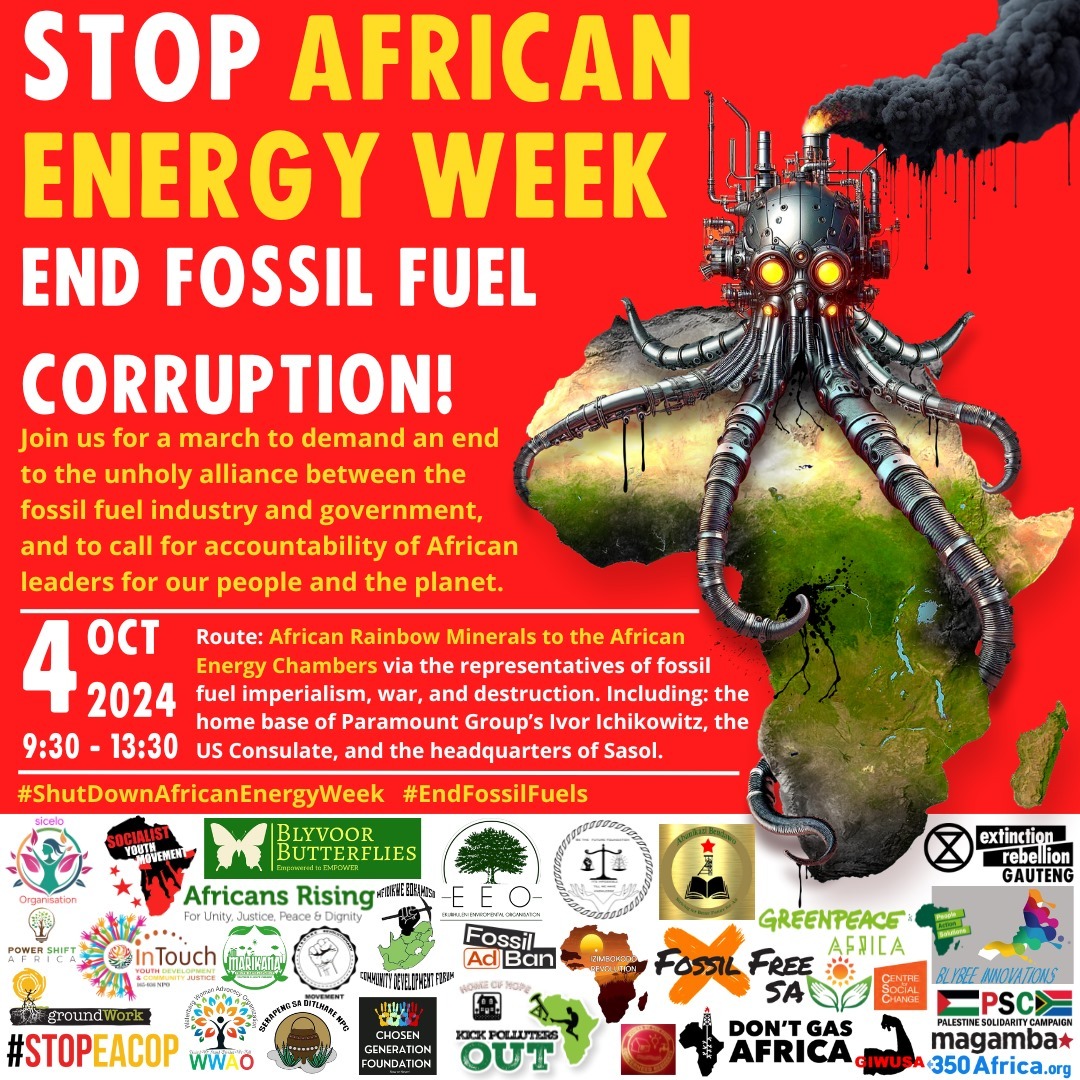“The Blessing” for Genocide: Nearly all BRICS+ Regimes Nurture Israel, Economically

The Biden-Harris genocide-facilitation team is celebrating the latest atrocities from Gaza to the West Bank to Lebanon, as is to be expected from an imperialist core power bloc lacking an iota of humanity when it comes to the peoples whom Israelis now oppress beyond comprehension.
But what also needs contemplating is a sub-set of economically-pro-Israel ruling classes where one might not expect them: within the BRICS+ bloc. Four of them are such blatant supporters that on September 27 at the United Nations, Benjamin Netanyahu painted them green with “THE BLESSING” label on a map: Egypt, Saudi Arabia, United Arab Emirates and India.
BRICS+ foreign ministers typically utter platitudes about wanting a conflict-free world and post-Western geopolitical arrangements, including a two-state solution for Israel and Palestine. So this public recognition by Netanyahu of their usefulness should be humiliating enough. (At the United Nations, among BRICS+ members only Ethiopia typically joins Axis-of-Genocide powers by abstaining on resolutions criticizing Israel, including a September 18 enforcement of the International Court of Justice’s ruling against abuses in Palestine.)
And although new BRICS+ member Iran was labeled “THE CURSE” in another map, one of the most respected Palestinian journalists, Ali Abunimah, pointed out on September 28: “Another question on many lips is why Iran, which vowed retaliation after Israel’s murder of Hamas leader Ismail Haniyeh in Tehran in July, has acted with such restraint. There is a growing perception that its lack of response only encouraged Israel’s ever more brazen violence.”
Beyond the obvious neighbours and India fingered by Netanyahu, there are other BRICS+ ‘blessors’ (as end-times allies of Netanyahu self-describe) witnessed in this ten-point (partial) catalogue of how war and profits make for unfortunate bedfellows:
1. Russia is the #1 coal supplier to the genocide and South Africa #2 now that Colombia and Turkey have declared Boycott Divestment Sanctions BDS against Israel;
2. Brazil supplies 9% of Israel’s oil while Russia operates the main shipping export terminal for one of the largest oil suppliers (Kazakhstan), and as Michael Karadjis points out, “Israel imports a small but regular amount of oil from its BRICS neighbour Egypt, via Sidi Kerir, near Alexandria, the terminus of the SUMED pipeline. Oil from BRICS members United Arab Emirates and Saudi Arabia, as well as Iraq, also feeds into this pipeline”;
3. in both South Africa and Brazil, leading officials have openly bragged in recent weeks that they will not impose coal and oil sanctions on Israel, with the latter’s defense minister also opposing potential cancellation of military cooperation with Tel Aviv-based Elbit Systems (currently ‘paused’);
4. India supplies vital military equipment for use in Gaza, the West Bank and now Lebanon, including Adani-Elbit’s deadly medium-altitude, long-endurance (‘male’) drones;
5. the two main parts of Israel’s main port – at Haifa – were privatized in recent years by Shanghai International Port Group and Adani, facilitating more efficient supply of weapons and ammo to the IDF;
6. Chinese-Israeli trade hit a recent record of $20 bn/annum, including $14.4 billion of exports to Israel (#1 in the world in 2022) – in spite of December 2023 claims that Chinese Cosco ships would avoid Israeli ports (a stance reversed in February);
7. India is the #5 trader with Israel at nearly $5 billion;
8. the normalization of Arab-Israeli trade continues, e.g. a recent wartime 5% increase in UAE-Israeli commerce – thanks to increasingly crucial transshipment services following Houthi disruptions to Red Sea shipping – featuring co-U.S. sub-imperial powers Egypt, UAE and Saudi Arabia, as Netanyahu himself bragged when applauding the new land route;
9. South African arms dealer Ivor Ichikowitz (the ruling party’s leading campaign contributor a year ago, and a tireless pro-Israel propagandist this year) operates a military joint venture with Elbit Systems, has a Tel Aviv office and runs an “Ichikowitz Family International Tefillin Bank” supplying the Israel Defense Forces;
10. thousands of migrants from Ethiopia, and hundreds from India, now serve as IDF-employed draftees or mercenaries, alongside an unknown number of South African citizens, and what may be as many as tens of thousands of Russians, because there are, as Brazilian journalist Pepe Escobar conceded, “one million plus Russian passport holders or double passport holders who live in Israel. This is a very very complicated affair because according to the Russian Constitution, Russia has to protect them. The fact that many of these are hardcore Zionist and with a genocidal mentality makes the problem even more unsolvable…”
Russian talk left, walk right
The BRICS+ leaders and allies meet in Kazan from 22-24 October. The immediate task for Russian foreign minister Sergey Lavrov is to bandage wounds suffered during a disastrous September 26 New York meeting of BRICS+ foreign ministers, shut down early due to apparent Egyptian and Ethiopian opposition to South Africa’s potential acquisition of a (veto-neutered) UN Security Council permanent seat.
But it is safe to predict that he and other foreign-ministry spin doctors will also work hard to disguise or outright ignore all these pro-Israeli economic and politico-military relations, as will the bloc’s many academic and media boosters who surely oppose the genocide yet deign from calling out some of its major BRICS+ facilitators.
One of the lead boosters, Escobar, wrote in June how a few days earlier, “Bahrain’s King Hamad bin Isa Al Khalifa personally asked to help organize a peace conference on Palestine, at which Russia would be the first non-Arab nation invited… the Russia-China strategic partnership, BRICS, and the Global Majority have been mobilized to enshrine Palestine as a sovereign state.”
Rhetoric and reality diverge, because, with 1.3 million Russians contributing to Israel’s genocide by living there, paying taxes and in many cases directly serving in the Israel Defense Forces, no wonder that one of the most anti-solidaristic statement conceivable about the genocide was posted on (Johannesburg native) Elon Musk’s platform X by Alexander Dugin within hours of Hassan Nasrallah’s assassination on September 28. According to Dugin, the man sometimes termed “Putin’s brain“ (a term borrowed from Steve Bannon’s self-applied nickname “Trump’s brain”), these are “Lessons from the Zionist Playbook” for Russia:
“Once again, the faster one acts, the more justified they are. Those who act with decisiveness and boldness win. We, on the other hand, are cautious and constantly hesitate. By the way, Iran is also following this path, which leads nowhere. Gaza is gone. Hamas’ leadership is gone. Now Hezbollah’s leadership is gone. And President Raisi of Iran is gone. Even his pager is gone… in modern warfare, timing, speed, and ‘dromocracy’ decide everything. The Zionists act swiftly, proactively. Boldly. And they win. We should follow their example.”
It’s a notion sickeningly reminiscent of Lavrov, speaking last December to RT: “The goals declared by Israel for its ongoing operation against Hamas militants in Gaza seem nearly identical to those put forward by Moscow in its campaign against the Ukrainian government.” Another surreal pro-Putin voice is that of commentator Andrew Korybko, who decorated his September 29 substack post – “Five Lessons That Russia Can Learn From The Latest Israeli-Lebanese War” – with a profoundly disturbing image of Putin-Netanyahu eyeing each other. Korybko apparently wants Ukraine to get the Nasrallah treatment:
“Russia remains sensitive to global public opinion, which is another outcome of prioritizing political goals over military ones, while Israel is impervious to public opinion at home, in Lebanon, and across the world. Russia will therefore put its troops in harm’s way capturing locations block-by-block as opposed to practicing ‘shock and awe’ like Israel is doing in Lebanon. Even though Russia’s approach led to a lot fewer civilian deaths, it’s still criticized much as Israel is, if not more… Putin’s noble plan of a grand Russian-Ukrainian reconciliation after the special operation ends appears to be more distant than ever, yet he still believes that it’s supposedly viable enough to justify staying the course by continuing to prioritize political goals over military ones. He’s the Supreme Commander-in-Chief with more information available to him than anyone else so he has solid reasons for this, but maybe Israel’s example in Lebanon will inspire him to see things differently and act accordingly.”
Pretoria hides behind the WTO
Even in a South Africa whose government called out the genocide at the Hague, corporate elites and their pocket politicians are no different, as an African National Congress leader revealed on September 26. Answering questions in parliament, South African trade minister Parks Tau replied to the endorsement by a small party (Al Jama-ah) of “mounting calls from social justice activists to stop trading coal with Israel.” In contrast, Tau rejected BDS-Israel on coal and everything else, outright:
“Sanctions applied by one member against another in the absence of multilateral sanctions by the United Nations (UN), would violate the World Trade Organisation (WTO) principle of non-discrimination and would open the country to legal challenge.”
(Reminiscent of pro-WTO, pro-IMF and pro-G20 statements at the BRICS Johannesburg summit, Tau’s reply is consistent with the stance of BRICS+ trade ministers who recently reconfirmed support for “the open, fair, transparent, predictable, equitable, non-discriminatory, inclusive, consensus- and rules-based multilateral trading system with the WTO at its core.”)
In the process, Tau willfully ignores that the whole Western world is violating WTO non-discrimination processes (e.g. in imposing 100% tariffs on Chinese renewable energy equipment instead of treating this instance of capitalist overinvestment as a global public good). And he ignores that in the United Nations General Assembly on September 18, a super-majority vote (124 in favour, 14 against, and 43 abstentions) confirmed that all states have the obligation to “prevent trade or investment relations that assist in the maintenance of the illegal situation created by Israel in the Occupied Palestinian Territory.”
In spite of Pretoria’s strong stance against genocide in The Hague, Tau and colleagues in effect reject the International Court of Justice mandate of July 19: “all States are under an obligation not to recognize as legal the situation arising from the unlawful presence of the State of Israel in the Occupied Palestinian Territory and not to render aid or assistance in maintaining the situation created by the continued presence of the State of Israel in the Occupied Palestinian Territory.”
Against Netanyahu’s blessors
The WTO is the worst site to see South Africa legitimizing the filthy coal trade with Israel, including a massive injection of 170 000 tons of coal into the Israeli power grid on September 27. Taking longer than usual due to the necessary rerouting around the west African coast to avoid Red Sea disruptions, the coal was delivered from Richards Bay harbour on August 11, just before a vibrant protest on August 22 against such shipments at the Johannesburg regional headquarters of the notorious commodities trading Glencore.
More such civil society protests here against Glencore and its main local ally, African Rainbow Minerals (led by the SA president’s brother in law) plus Ichikowitz and the U.S. Consulate (located a couple of blocks apart) are imminent, including on October 4. These will more tightly link the Palestine Solidarity Campaign and numerous climate justice activists. And brics-from-below debates about how to address the broader problem of West/BRICS+ imperial/sub-imperial relations – exemplified by the joint corporate empowerment of Israel – begin on October 8, with a day-long webinar tribute to Russian dissident Boris Kagarlitsky (sign up here).
Indeed the only beneficiaries of regimes that – like Pretoria – prop up neoliberal multilateralism in this manner are the multinational corporates based in the West and BRICS+ economies, the same ones nurturing Netanyahu. If the military balance of forces continues to degenerate in favour of Israel and its Axis of Genocide, then the resistance movements that put BDS pressure on Israel’s BRICS+ blessors will be all the more urgent.
Protests at Glencore Johannesburg headquarters, 22 April 2024 – Source: SA BDS Coalition




